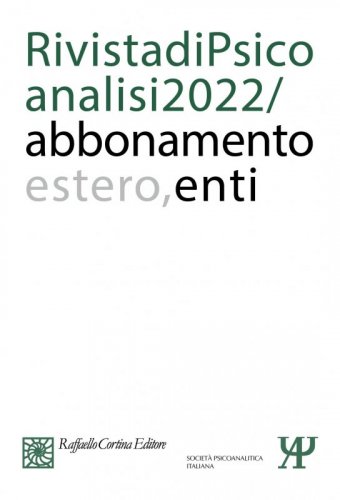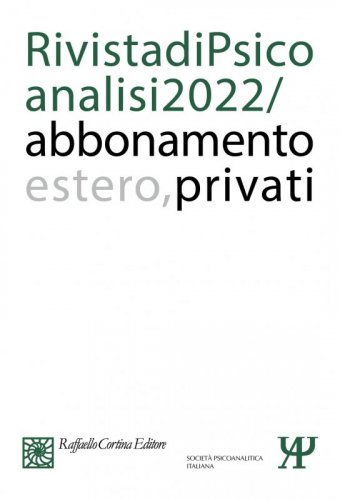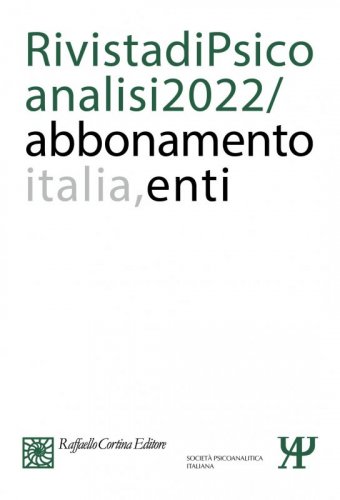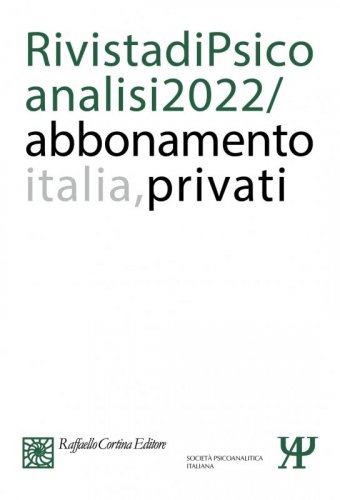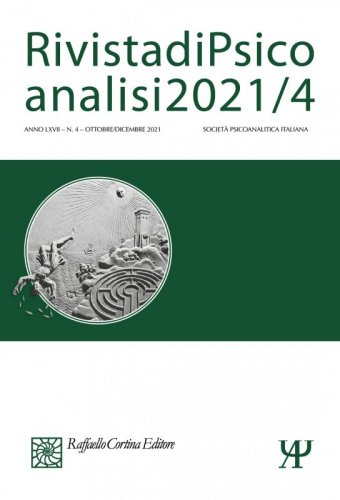Raffaello Cortina Editore
Annual subscription Rivista di psicoanalisi 2022 - Institutional, Rest of the World
editore: Raffaello Cortina Editore
Annual subscription Rivista di psicoanalisi 2022 Individuals, Rest of the World
Autori vari
editore: Raffaello Cortina Editore
Abbonamento Rivista di psicoanalisi 2022 - Enti Italia
Autori vari
editore: Raffaello Cortina Editore
Abbonamento Rivista di psicoanalisi 2022 - Privati Italia
Autori vari
editore: Raffaello Cortina Editore
Rivista di Psicoanalisi 2021/4
LXVII - (4) - Ottobre/Dicembre 2021
 ita
ita
 Eng
Eng




